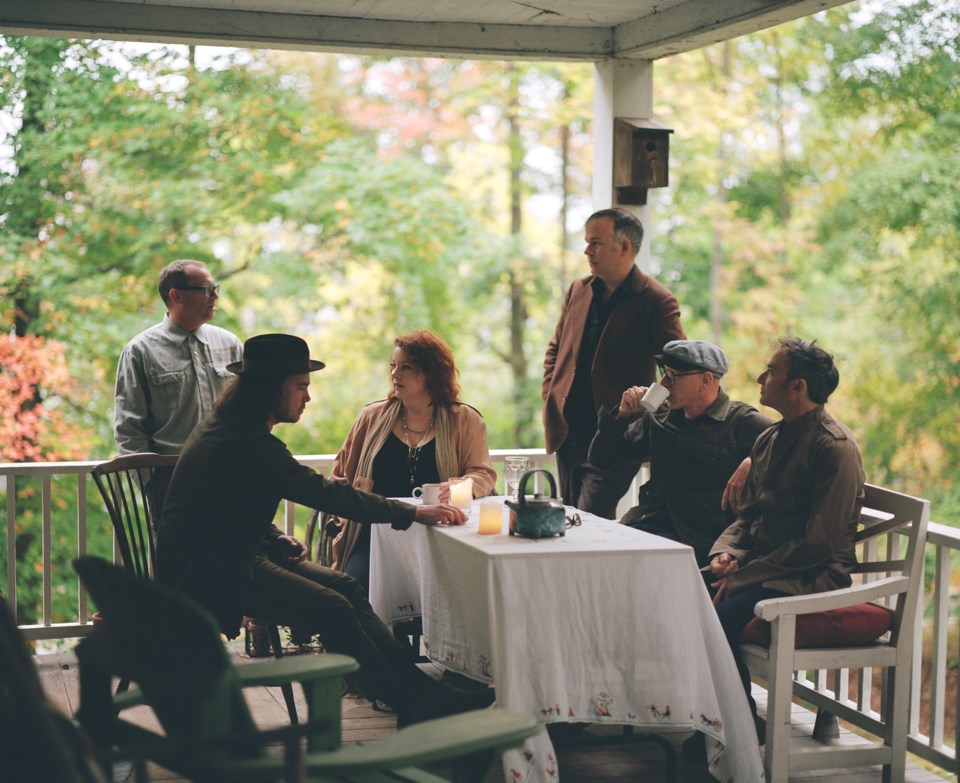Montreal pop rock outfit, Stars, has been pumping out some of the finest storytelling Canadian music has to offer for more than 20 years now—so long, in fact, that fans will often approach the band to say how much they used to like their old stuff.
For co-lead singer and songwriter Torquil Campbell, he doesn’t take those comments as a dig, but a well-earned compliment.
“What they really mean is, ‘I used to be a person who loved music. I used to be a person who was obsessed with music and your music meant a lot to me and now I’m older and it doesn’t mean as much to me,’” he says. “There’s a line on the new record that says ‘Nothing new has changed except you.’ I think people change but the person you were doesn’t, and that person still exists in memory and still exists in music and still exists in a part of yourself that you deny now but is still there.”
If ever there was a band that was OK with a bout or two of nostalgia, it’s Stars, who have long been known to tap into themes of memory, loss and hope.
In fact, their latest record, the band’s ninth studio album, From Capelton Hill, is named after the place of the same name in Quebec’s Eastern Townships, where Campbell’s family has owned a home for 120 years and where the band has been going off and on every summer since its inception.
“It’s this old house that we hold onto and we can’t be in in the winter—and it never changes. It’s the only place in my life that’s stayed consistent and has always been home,” says Campbell, who bounced around England, Canada and the U.S. growing up. “I think the reason the record is called that is because this place has always represented immutability, the unchangeable things in life.”
Over the past two years of immense change and uncertainty, Campbell and the rest of the band yearned for predictability, which has bled into the record, a return to basics for the award-winning group, at least sonically speaking.
“I know over the last two years, the weight of change and the amount of things we’ve had to accept letting go of and things we’ve had to accept that aren’t coming back the way they were is seismic and difficult,” Campbell says. “So I think we were compelled to try and make music from a place of stillness, from a place where things don’t change. That inevitably means you’re thinking about the past. The past doesn’t change, it’s just there for you to go back into. I think Stars have always been preoccupied with that idea and this record is just a further exploration of that.”
Apart for the first time in 20 years during COVID, “we really lost our identity and we really didn’t know whether we would make music again or we would ever play shows again,” says Campbell. So From Capelton Hill became less about switching up their sound to keep things fresh, and more about “reassuring each other nothing was lost,” he adds.
“A lot of the lyrics are kind of letters to each other, trying to help each other through the day to some degree.”
There’s a softness to the album that is apparent throughout, no doubt moulded by the sharp edges of the pandemic.
“I think there’s an element of gentleness on the record—on each other and the listener—that may not have been part of the record otherwise,” Campbell says.
The process of making the album reminded him of 2014’s No One Is Lost, which was recorded as the band’s then-manager was diagnosed with Stage 4 colon cancer at just 28 years old.
“We thought we were going to lose him and it was right in the middle of making the record so the record became this act of defiance and this act of hope. I think in some ways this record is similar,” Campbell says. “Every time something tries to kill this band, we find some little part of ourselves that says, ‘No, we won’t be killed’ and we keep going.”
Veterans of the 2010 Winter Olympics and medal ceremony, Stars return to Olympic Plaza for a free show as part of the Whistler Summer Concert Series on Thursday, July 14 at 7:30 p.m. DJ O Show gets the crowd warmed up, starting at 6:30 p.m.




